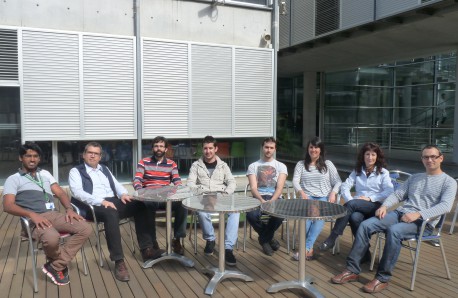Vidal
Research group

Abstract
Our past and current objectives encompass the design and development of efficient catalytic enantioselective methodologies and their application to the preparation of targets of biological, pharmacological and agrochemical relevance. Designing modular catalysts and versatile synthetic procedures for their preparation, and performing computational analyses of the catalytic event, are key elements in our strategy.
Two main objectives are pursued within the group: In the first instance, we aim to develop, using versatile covalent chemistry, highly modular enantiopure P–OP ligands for asymmetric organometallic catalytic synthesis. Secondly, we aim to devise strategies to generate a set of supramolecular chiral ligands which resemble a privileged structure yet at the same time offer a range of closely related geometrically active sites.
Topics addressed
- Supported catalysts and flow processes
- Development of smart catalytic systems
- Superparamagnetic nanoparticles
Articles
“Rhodium-Catalysed Asymmetric Hydrogenation as a Valuable Synthetic Tool for the Preparation of Chiral Drugs”
Chem. Soc. Rev. (2013) 728-754
P. Etayo, A. Vidal-Ferran
“[Ir(P-OP)]-Catalyzed Asymmetric Hydrogenation of Diversely Substituted C=N- Containing Heterocycles”
Org. Lett. (2013) 2066-2069
J. L. Núñez-Rico, A. Vidal-Ferran
“Bis(phosphite) Ligands with Distal Regulation: Applications in Rhodium-mediated Asymmetric Hydroformylations”
Chem. Eur. J. 2013 2720-272
I. Mon, D. Amilan Jose, A. Vidal-Ferran
“Small Bite-Angle P-OP Ligands for Asymmetric Hydroformylation and Hydrogenation”
Org. Lett.2013 3634-3637
H. Fernández-Pérez, J. Benet-Buchholz, A. Vidal-Ferran
“Catalytic Enantioselective Reductive Desymmetrisation of Achiral and Meso Compounds”
Chem. Commun. 2013 10666-10675
H. Fernández-Pérez, P. Etayo, J. R. Lao, J. L. Núñez-Rico, A. Vidal-Ferran